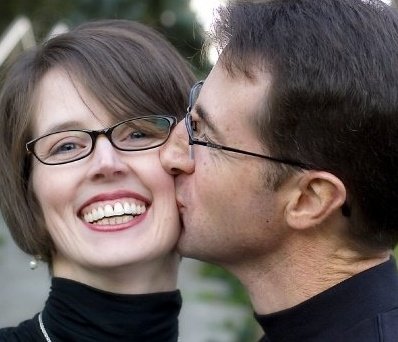
Kenneth R. Jacobs, 75, died Wednesday February 11, 2009 at an Abilene, Texas medical facility. He was born July 9, 1933 in Franklin, North Carolina. His parents were Floyd S. Jacobs and Wilmer M. (Angel) Jacobs.
Kenneth entered the army on June 20, 1950 and served for four years and one day. This was during the Korean Conflict. After he was honorably discharged, he apprenticed to become a journeyman carpenter in Milwaukee, Wisconsin. He worked in several cabinet shops in Iowa and Illinois.
In 1962 he married Marilyn J. Jacobs on April 28
th. They were married for almost 47 years. They lived in Quincy, Illinois,
Sweetwater, Texas, Lubbock, Texas and Abilene, Texas.
In 1963 he enrolled in Quincy (College) University in Quincy, Illinois. He graduated with a B.A. degree in history in 1967. In 1968, he took a job teaching history in the public schools in
Sweetwater, Texas, and enrolled in Hardin-Simmons University in the master’s degree program where he studied under the legendary Dr. Rupert N. Richardson, dean of Texas Historians.
Dr. Jacobs completed his master’s at Hardin-Simmons University in 1971 and received a graduate teaching
assistantship at Texas Tech University. He taught survey history classes and studied for his doctorate at Texas Tech University. In 1977 he received his doctorate in history and political science after studying under the eminent historian Dr. Earnest Wallace. In September of that year he accepted a position as assistant professor of History at Hardin-Simmons University. He was an immediate success in the classroom. The students loved his relaxed manner and the humor in his lectures. Attila, a massive tomcat, and “the Big O,” who could be approached about poor grades, are two characters that will live on in the memories of his students.
Dr. Jacobs was professionally active at Hardin-Simmons. He became associate editor of the West Texas Historical Yearbook in 1978. He became an editor of this journal in 1985. He held this position until his retirement at the end of the 1997-1998 school year. He was named Rupert N. Richardson professor emeritus after his retirement.
He published several articles in Texas history in professional journals, and in 1984 co-authored a book with Dr. B. W. Aston and Dr. Fain Downs, The Future Great, concerning Abilene, Texas. In 1990 Dr. Jacobs edited a new edition of a famous book by his mentor Dr. Richardson The Comanche Barrier. He held memberships in the American Historical Association, Phi Alpha Theta, The Southern Historical Association, The West Texas Historical Association and the Texas Historical Association.
During his career at Hardin-Simmons University, Dr. Jacobs received several honors. In 1986 he was named
Reata man of the year. The next year the faculty voted him the Cullen Teaching Award. In 1989 the students at Hardin-Simmons named Dr. Jacobs the teacher of the year, an honor that he treasured above all others. In 1997 the All School Sing was dedicated to Dr, Jacobs. Dr. Jacobs was the original faculty sponsor the Theta Alpha Zeta fraternity.
Dr. Jacobs was preceded in death by his parents and by his brother Floyd S. Jacobs, Jr.
He is survived by his wife Marilyn and several cousins. He is also survived by his special adopted family Bryan, Elizabeth, and Luke Adams and many friends and former students.--
Abilene Reporter News.Dr. Jacobs was my favorite history professor, my fraternity sponsor, & a dear friend.
I love Dr. J.
He was easy to love. All at once larger than life, yet accessible. A history professor & a dedicated husband. A mentor & a friend. You could count on him. You could count on comments, witticisms, criticisms, Attila, the Big O, Miss Marilyn, Miss fill-in-the-name of his grader at the time, and many, many more. Keen mind, quick wit, twinkling eye, & sonorous voice.
"Mr. Householder, can you tell me the year that all good things began?" Of course we all knew the answer that we would pronounce in our most dignified voice, "1901, Sir, the year Theodore Roosevelt became president." That oft repeated question spurred me in later years to read presidential biographies. I started with none other than TR. Many times as I read I would wonder if this story or that character trait of TR may have been attractive to Dr. J. The appeal of TR to man of history like Dr. J was obvious.
Such was the appeal of Dr. Jacobs to a young man like me.
 There are a lot of "one anothers" commanded in the New Testament. Jesus both initiated & summarized those commands as quoted in John 13:34-35.
There are a lot of "one anothers" commanded in the New Testament. Jesus both initiated & summarized those commands as quoted in John 13:34-35.
